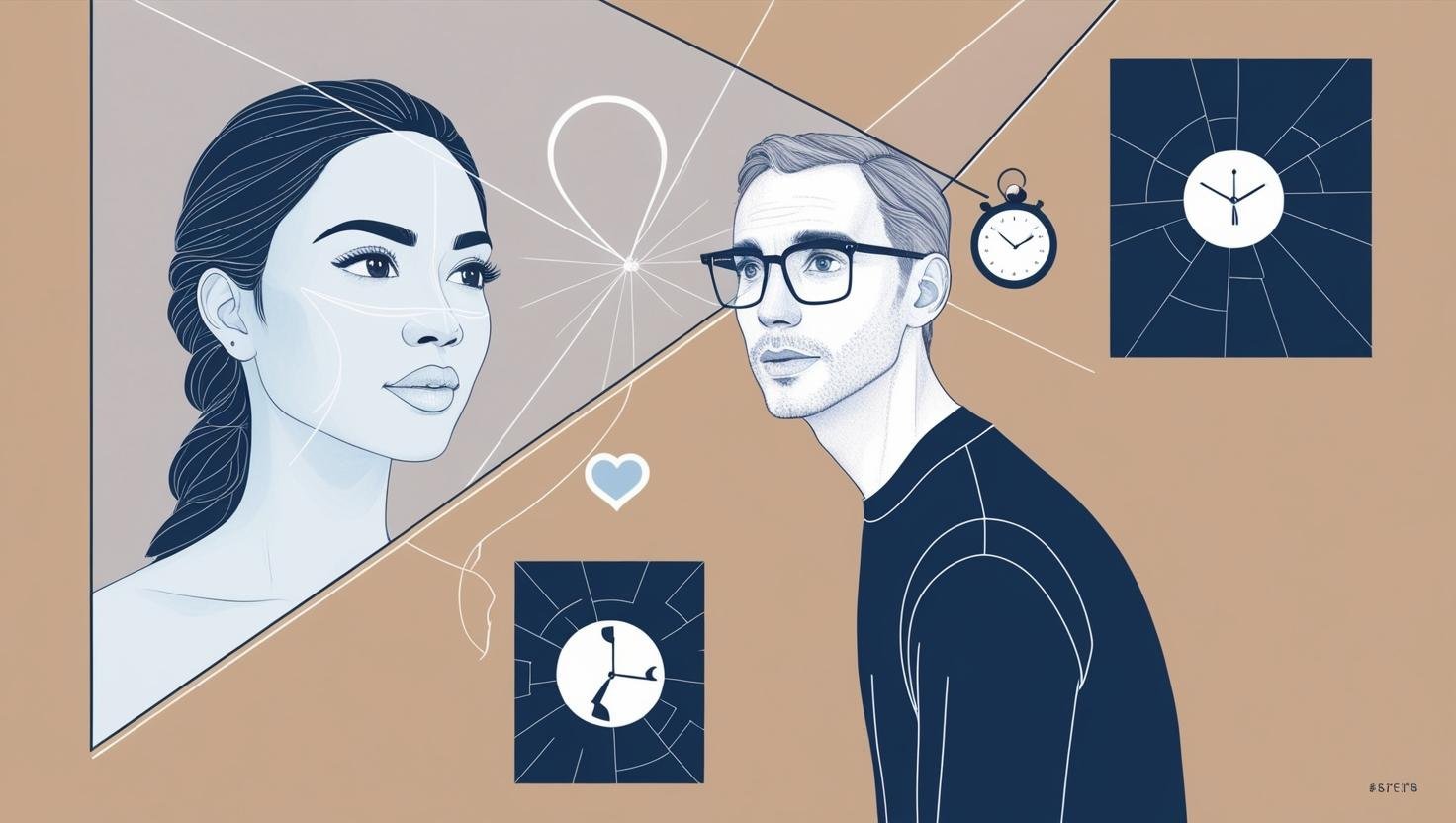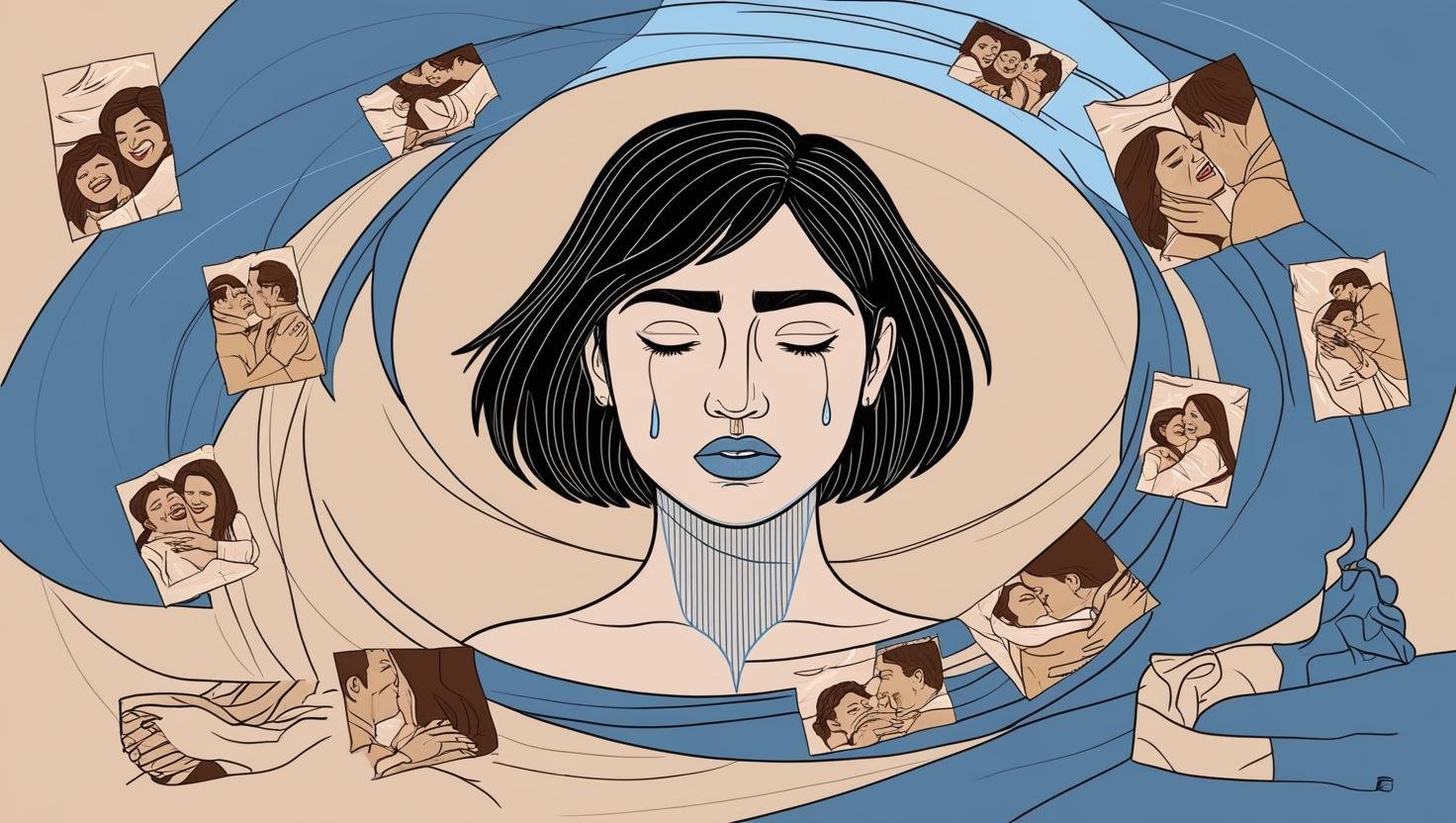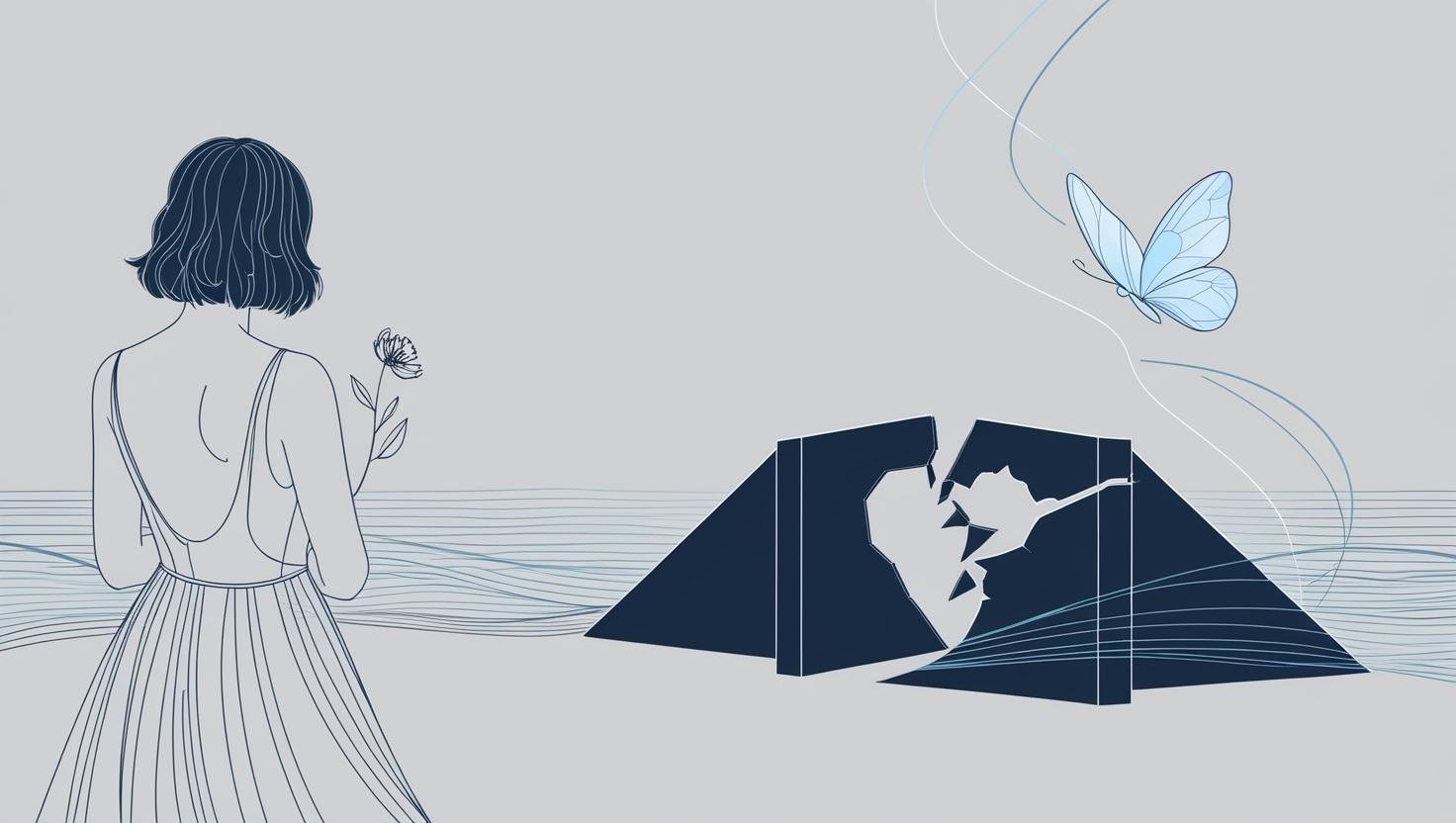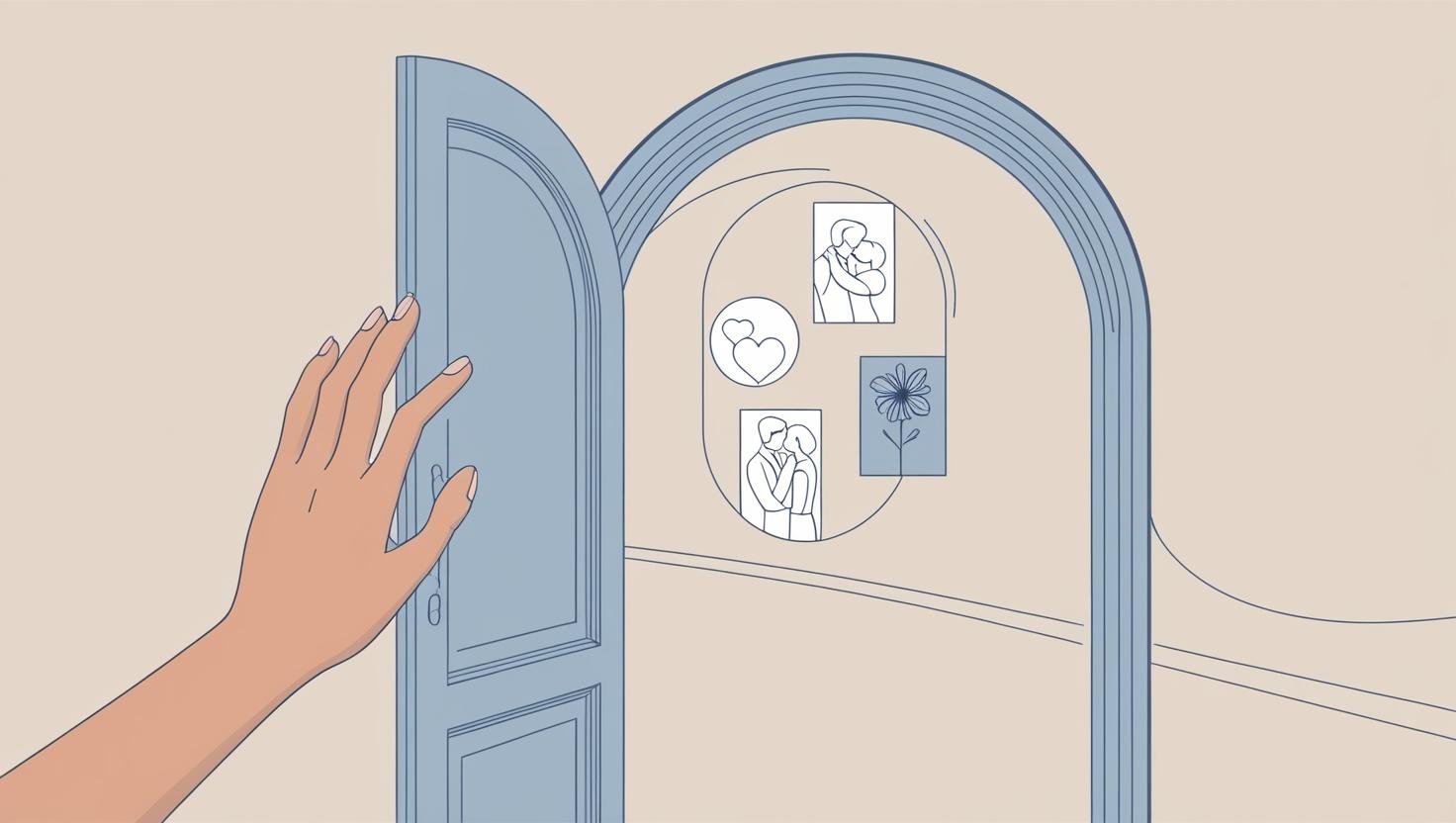lessons of first love
ten years, one goodbye: finding freedom in letting go
There are moments that contain entire universes.
Moments that divide your life into a before and an after.
I saw him again.
My first love.
Ten years since that "hello" in a small town bar. Ten years since a glance changed the course of my story. A simple "yes" to a drink triggered the purest butterfly effect: laughter, tears, calm, storms and, finally, the foundations of who I am today.
love what must go
Much is said about love that hurts, about toxic relationships that we must escape.
We rarely talk about the pain of letting go of a good love.
That love that builds us up even as it fades away.
That's the story I offer you today.
the meeting of souls
Buddhists call karuna samskara the traces left in our souls. They believe that when two people connect deeply, it is not by chance but a sacred contract agreed upon on another plane. An agreement between souls who chose to meet in order to learn lessons that could only be taught to each other.
I was not his first great love.
But in the book of my life, he occupies entire chapters, with words underlined, pages marked with tears, and happy memories framed on a wall of remembrance.
When we first broke up about six years ago, in an act of bravery that I now recognize as the first hint of the woman I would become, I wrote him a letter.
A letter where, paradoxically, I thanked him for the pain.
I told him that despite the breakup, he was my best friend.
I thanked him for teaching me the lesson of experiencing heartbreak and that I still believed in love. Because he had shown me that the love the poets talk about was not a fiction.
It existed. I had felt it.
the first breakup: death & rebirth
Like everyone going through their first heartbreak, I thought I would never love again. That this physical, almost visceral pain would last forever. That my broken heart would never feel whole again.
Years later, as a fundamentally different woman, I see how that painful moment transformed me forever. Every "yes" to myself that followed that big "no" from the universe was a step toward my truest self.
There were relapses, of course. We tried to reconnect, but it didn't work.
How is this possible? If there was so much love, why did we fail to find our way back to each other?
the irony of good love
There is something uniquely painful about breaking up with genuinely good people. Those who saw us completely, who broke through our walls and inhabited our vulnerable spaces.
Kindness disarms more than any weapon.
When we open ourselves completely to someone and that person leaves, they take irreplaceable fragments of us with them. It is a form of death.
Mourning is the price we pay for loving. And the deeper the love, the greater the mourning.
When we tried to resume our relationship, we were no longer who we had been.
As Heraclitus taught: you cannot enter the same river twice. Neither the river is identical, nor are you the same person.
He was looking for a version of me that no longer existed—a girl who had given way to a woman. And I could no longer inhabit a love that asked me to forget the pain I had experienced..
I realized that I was carrying old wounds, formed by a lack of self-confidence and self-esteem.
It is said that we become attached not only to people and objects, but to identities, expectations, and narratives about how our lives should be.
I was tied to a story: the one that said this man was the protagonist of my destiny. Without him, my story was incomplete.
There was love, yes, but also projection. I was in love not only with him, but with an imagined future, with a version of me that existed in relation to him.
I longed to be "chosen." I dreamed of motherhood, wedding, shared life.
And he... he was just a boy in a man's body. He could barely take care of himself, navigating without a compass, terrified at the thought of sustaining not just his life, but someone else's.
Every year that passed feeling his insecurity and indecision hurt me.
His prolonged indecision was, in itself, a decision.
And so, our relationship extended well beyond its expiration date.
I, a girl pretending to be a woman, lacked the confidence to recognize that where there is no alignment, there must be closure.
He, a boy pretending to be a man, finally found the courage to end the relationship in the healthiest way possible.
love the invisible
What made my history with him so difficult to explain to others—and therefore so difficult to completely let go of—was the very nature of our connection. The love I experienced for him was an almost soulful recognition. Or well, that's what I told myself to romanticize my first relationship, because if you haven't noticed, I am very emotional.
The people around me did not understand. They constantly questioned me, puzzled by my devotion to someone who, according to their external criteria, did not seem to deserve it.
"He's not handsome."
"No status."
"He's crazy."
"He has no money."
But they were looking in the wrong place. It was the feeling of home I found in his presence, even when we were silent.
It was not a love based on anything material or physical. It was intangible. A connection that defied social expectations, checklists, and external standards of a "good match."
the value of having loved
I learned that our connection did not need external validation.
Its value was in having existed.
In having opened in me capacities for feeling that I did not know existed within myself.
And perhaps most liberating: love is not exclusive to one person in a lifetime.
Our souls can resonate with others, at different times, in different ways.
the invisible duel
What aggravated my healing process during the first breakup was trying to maintain contact while grieving. Watching him move on with his life, with dates and new possibilities, while I remained frozen in the moment of the breakup, was like rubbing salt in an open wound. Each new woman that appeared in his life seemed to confirm what my insecurity had always whispered: "I was never enough."
But my pain was not his "fault," nor was my sense of inadequacy a result of his actions.
They were manifestations of insecurities already present in me, which found fertile ground to flourish in the context of our separation.
the myth of second chances
After our second ending, I was still clinging to the romantic idea: "If something is meant to be yours, it will come back."
I kept repeating to myself this story straight out of movies, where two truly committed people can heal any wound. Starting over means not only forgiving the other, but forgiving yourself, like Noah and Ally in The Notebook.
Over time, I came to understand that yes, some relationships can reconnect and evolve. Like therapist Esther Perel, who has written about "choosing" her husband several times throughout their marriage.
Each choice was a rebirth after a crisis, a reconstruction on solid foundations.
But therein lies the truth that I was slow to see: in relationships like Perel's, there is a foundation from the beginning. What is rebuilt is something that was once well-built.
My relationship was different. Ambivalence was not a phase; it was our normality.
You can't restore what was never finished.
It is impossible to renew a "yes" that was always "maybe."
In yearning for second chances, we must honestly ask ourselves: Are we trying to repair a real bridge or build one that only existed in our imagination?
This was my unfinished inner work: waiting to be "chosen," romanticizing the unromanticizable.
love that liberates
Some relationships are karmic: designed to challenge us, to expose our deepest wounds in order to heal them. Others are dharmic: created to support our spiritual purpose.
My first love was both: a karmic lesson transformed into dharmic wisdom.
Through him, I learned to forgive myself for allowing someone to make me feel expendable.
For giving without first choosing myself, loving myself, and working on myself.
Through that relationship, I also learned the importance of seeing people as they are, not as they could be.
When you are with someone in whom you see so much potential, you connect with their soul and intuitively know who they could become... but their own unresolved traumas and emotional blocks prevent them from manifesting that higher version of themselves.
In those cases, you find yourself loving a hypothetical future, not a present reality. And you can remain eternally in love with what could possibly come to be someday, or you can dare to move forward, recognizing that waiting for someone to evolve within themselves is a long shot. Because that evolution might never happen, at least not in the lifetime we share.
letting go without forgetting
Letting go is releasing expectations about what "should" have been.
Not dwelling on "what if..."
Making peace with the fact that some beautiful stories are meant to be chapters, not whole books.
Maybe in another quantum reality, he and I loved each other correctly from the beginning. We found a way to grow together instead of growing apart.
But in this life, in this reality, I have learned that the person destined to love me will choose me from the first moment. It will be full of determined action, not hesitation. It will show consistency, not intermittency. It will project security, not confusion. It will assume responsibility, not evasion. It will be assertive in its desire, not ambiguous in its commitment.
There are no gray areas when it comes to love. Only certainty.
My final act of growth was to understand: I didn't need any connection to validate what I had experienced, and the greatest test of maturity was precisely the ability to let go completely.
The Buddhist tradition teaches about metta—unconditional loving-kindness. It does not possess, does not cling, does not demand. It sincerely desires the happiness of the other, whether they are in our life or not.
five steps to emotional freedom
What allowed me to seal that door with peace were five elements:
Time: There are no shortcuts in grief. We need to live through each phase fully.
Self-knowledge: Through writing, meditation, and therapy, I came to understand my patterns, fears, and authentic needs.
Self-love: I learned to validate myself from within, without seeking external confirmation of my worth.
New experiences: Life kept moving forward. New people and opportunities expanded my world beyond what I thought possible.
The truth about fear: Understanding that keeping doors ajar was fear of finality, not love.
the surprise on the other side
What I found after the final goodbye surprised me:
Instead of loss: expansion.
Instead of emptiness: fullness.
Instead of nostalgia: gratitude.
My heart, in accepting definitive endings, opened up completely. Suddenly there was more space, more light, more possibilities.
The beautiful thing was discovering that I kept everything valuable: lessons, memories, growth. Gifts that no one could take away from me.
There is a paradox: being his friend to the end means, oddly enough, letting him go completely.
True friendship desires good without conditions. Without demanding constant presence or tangible benefits.
Being his friend means honoring our past without contaminating it with present expectations. Respecting our current paths without connections.
I will wish him well always, from a place of genuine peace. His joys will be my joys, his accomplishments celebrated, his loves blessed.
The greatest love we offer to someone who was important is freedom.
Freedom of being.
Freedom to follow their path.
Freedom to forget.
the perfect closure
It's funny how life works. The universe put him in my life at the end of April 2015, and exactly 10 years later, at the end of April 2025, we decided to see each other for the last time.
"I think this should be our last goodbye," I told him.
"I am in acceptance," he replied.
This is how it should be. On good terms. In mutual recognition.
Whatever it was, it was beautiful at the time.
What it is, is perfect in its conclusion.
What is to come will be exactly what we deserve in our separate ways.
After so long, a residue of resentment remained. Not toward him, but toward the experience of having been deeply hurt.
Recognizing this was my final step toward emotional freedom. And remember, there is no right timeline for healing. Even years after I had "turned the page," met other people, and built new relationships, that wound was still there—a little thorn that made me question why someone had hurt me like that.
It took me years to get here.
The path to healing deserves self-knowledge, compassion, love, and patience with yourself. There is no rush and no deadlines to meet. As adults, we continue to heal wounds from our childhood; each process has its own pace that deserves to be honored in its entirety.
In the Jewish tradition, mourning after a death lasts a whole year. Everyone recognizes that the mourner is rebuilding, fragmented.
Why don't we extend this compassion to those who lose a relationship? It is also a death.
It is the partial destruction of the being we were, to give way to the being we will be.
for you, who still hurts
If you are letting go of a love that was good, ask yourself:
Which part really struggles with the ending—is it genuine love or attachment to a story you've been telling yourself?
How have you transformed through this experience? What version of you has been born from this pain?
What unique lessons do you take away that could not have been learned any other way?
Are you trying to rebuild something that has already served its purpose in your journey?
Can you love deeply enough to fully release, without conditions or expectations?
The loves that mark us do not define us by their actual presence, but by how they transform us forever.
Ten years after the first "hello" and after the last "goodbye," the story found its perfect closure.










